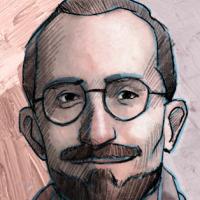
Matthieu Barbier
(Re)Conceptualizing Function and Goal-Directedness
Open-ended evolution and organizational closure
Subaward Principal Investigator
Matthieu searches for simplicity in macroscopic phenomena in theoretical ecology, often relying on ideas from statistical physics. He graduated in theoretical linguistics and physics, pursued a PhD in the latter in Paris, and explored various interfaces with economics and ecology in Incheon, Princeton and Moulis. He co-founded the interdisciplinary nonprofit Institut Natura e Teoria en Pirenèus, and is now employed as a researcher at the Plant Health Institute in Montpellier, France. His variegated experiences have left him with two major archetypes for how he thinks about intriguing phenomena in life, cognition and society: from physics, the duality and equivalence between causal (force-based) and acausal (variational) explanations; from linguistics, the separation of concerns between historical (etymological) and functional (grammatical or semantic) subfields. He hopes to use these archetypes to better understand, and formalize mathematically, the equivalences and tensions that he has encountered between various modes of scientific explanation of biological phenomena.
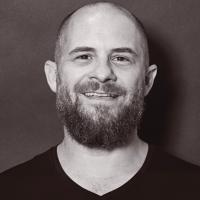
Justin Garson
(Re)Conceptualizing Function and Goal-Directedness, Agential Behavior and Plasticity in Evolution
Putting representations back into goal-directedness
Subaward Principal Investigator
Justin Garson is Professor of Philosophy at Hunter College and The Graduate Center, City University of New York. He is the author of Madness: A Philosophical Exploration (Oxford, 2022), What Biological Functions Are and Why They Matter (Cambridge, 2019), A Critical Overview of Biological Functions (Springer, 2016), and The Biological Mind: A Philosophical Introduction (Routledge, 2015; second edition 2022). His main interest is thinking about teleology in the life sciences and developing its implications for debates in the philosophy of mind, medicine, and psychiatry. His aim for the John Templeton Foundation Science of Purpose Initiative is to explain goal-directedness in living creatures in terms of their capacity to make and use inner representations. In this way, he seeks to place the study of goal-directedness within the context of naturalistic, evolutionary accounts of representation.
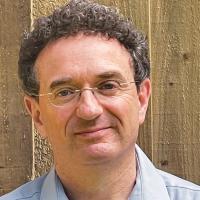
David Oderberg
(Re)Conceptualizing Function and Goal-Directedness
Mistakes in living systems: a new conceptual framework
Subaward Principal Investigator
University of Reading
David S. Oderberg is Professor of Philosophy at the University of Reading, England and current Head of Department. He is the author of six books including Real Essentialism (2007) and The Metaphysics of Good and Evil (2020), as well as editing or co-editing several others in logic, metaphysics, and ethics, including Classifying Reality (2013). He is also the author of over seventy articles in metaphysics, philosophy of biology, ethics, philosophy of religion, and other subjects. In 2013 Professor Oderberg delivered the George Hourani Lectures at SUNY Buffalo. He also edits Ratio, an international journal of analytic philosophy, and is a Senior Fellow of the Higher Education Academy, UK.
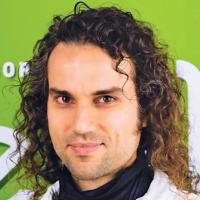
Arnaud Pocheville
(Re)Conceptualizing Function and Goal-Directedness
Open-ended evolution and organizational closure
Subaward Principal Investigator
Arnaud Pocheville is a theoretical biologist and philosopher of science whose research concentrates on issues in evolutionary biology, including topics such as the structure of evolutionary time and the notion of biological information. His aim is to clarify current theoretical controversies (e.g. between niche construction theory and the extended phenotype perspective), such as by showing that the competing perspectives implicitly posit different hypotheses about the time-scale separability of the diverse biological phenomena they claim to consider (mostly development, ecology and evolution). He completed his PhD on the ecological niche concept at the laboratory Ecology and Evolution, École Normale Supérieure, Paris and held postdoctoral research positions in Theory and Methods in Biosciences group at the University of Sydney and at the Center for Philosophy of Science, University of Pittsburgh. He is currently a permanent research fellow at the French National Centre for Scientific Research (CNRS).
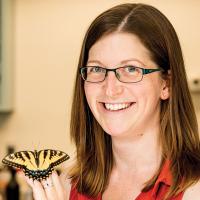
Emilie Snell-Rood
(Re)Conceptualizing Function and Goal-Directedness
‘Function’ in biology and bio-inspired design
Subaward Principal Investigator
University of Minnesota
Emilie Snell-Rood is an Associate Professor and Associate Head of Ecology, Evolution and Behavior in the College of Biological Sciences at the University of Minnesota. Emilie did her graduate work at the University of Arizona and a postdoc at Indiana University before starting at the University of Minnesota in 2011. Research in her lab asks why organisms vary in developmental and behavioral plasticity, and what this means for predicting responses to novel environments. She primarily uses butterflies as a study system, but also has experience working with beetles, bees, birds, and mammals. Emilie teaches Animal Behavior and a course on bio-inspired approaches to problem-solving. Her interests in bio-inspired design have led to a series of interdisciplinary collaborations developing educational modules for engineers and designers interested in looking to biodiversity for ideas in their own applications.
